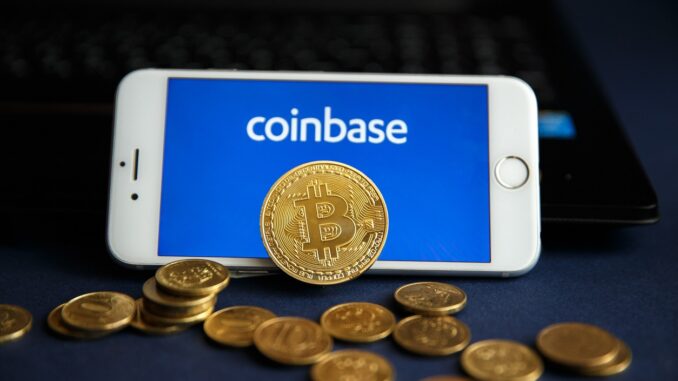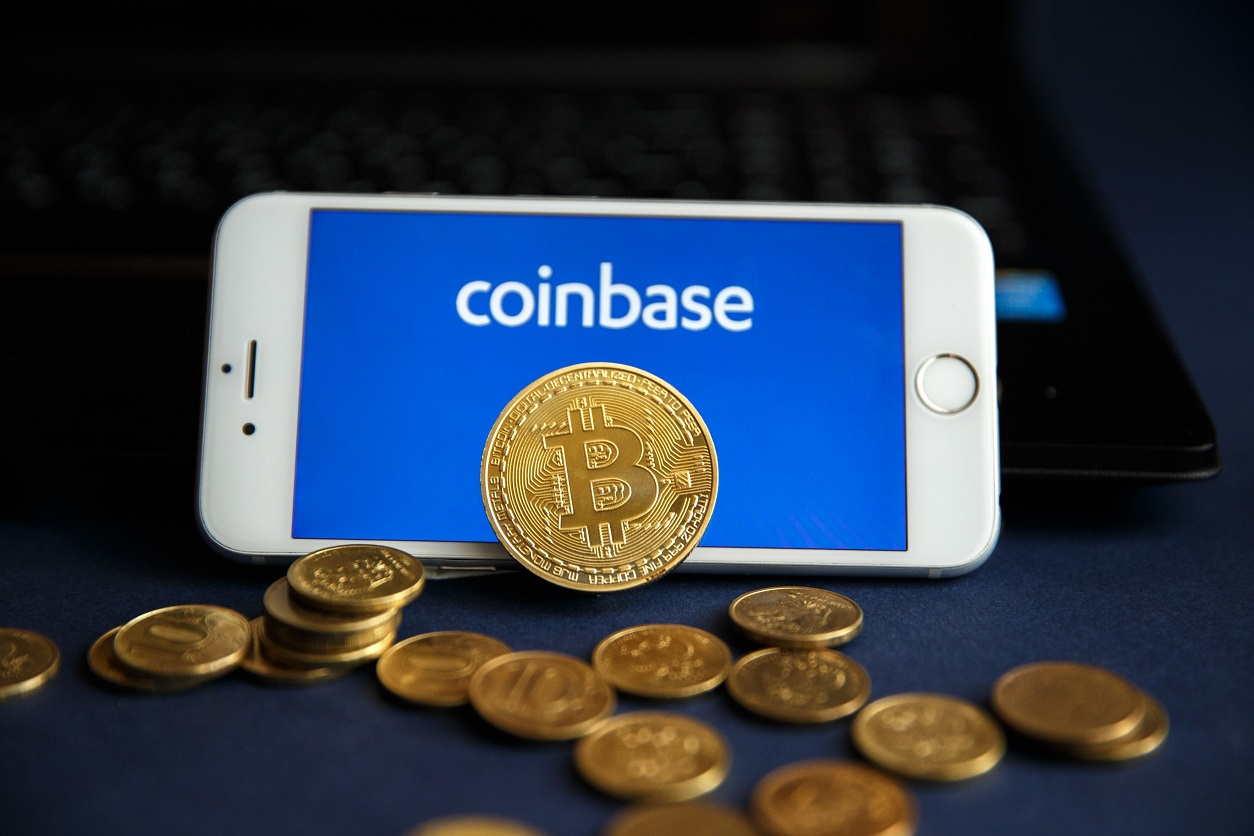
[ad_1]

Key Takeaways
Coinbase stock is down 87% from its IPO price, the company now worth $11 billion
Regulators are moving in on the industry in the US, creating an increasingly hostile environment
Share price reflects these developments, as well as plummeting volume in the crypto space, writes our Head of Research, Dan Ashmore
Coinbase is at war.
The exchange is the only publicly traded crypto platform in the US, an attribute that appeared a massive strength at the time of its IPO in April 2021. This was a time when Bitcoin was trading at $63,500, dinner tables were filled with questions such as “how high can it go?”, and everybody wanted a piece of the crypto pie.
Things are a little different today. Coinbase’s status as a public company may be helping it with regard to transparency in an increasingly opaque crypto industry, but it is also presenting its troubles for everybody to see. The stock is down 87% from the price it floated at.
Coinbase faces a fight on multiple fronts
I wrote a deep dive on the prospects of the company last October, after it was revealed CEO Brian Armstrong had sold 2% of his stake. Seven months on, crypto prices have rebounded strongly but Coinbase’s future seems murkier than ever.
The company faces challenges on multiple fronts. The first, obviously, is the state of the crypto industry. Prices, volumes and interest have evaporated at an alarming rate over the 18 months. The Federal Reserve’s transition to tight monetary policy in the face of rising inflation has sucked liquidity out of the economy and crushed assets residing on the far end of the risk spectrum. And make no mistake, crypto is most definitely out there on the risk curve.
Bitcoin has careened down as low as $15,500 this cycle, a drawdown of 77% from its peak. It currently trades at $29,000 following a bumper first quarter of the year, but the issues with Coinbase go beyond merely crypto prices.
The industry has been under siege from regulators this year, with the SEC in particular clamping down on a space that conceived multiple scandals last year – most notably the spectacular collapse of not-so-stable stablecoin UST and crypto exchange FTX.
Coinbase is bracing itself for action after it received a Wells notice earlier this year. A Wells notice is a formal warning from the SEC that evidence of proof of lawbreaking has been found, and legal action will likely be recommended.
The SEC claims Coinbase’s staking service, Prime and Wallet products, as well as its general listing process, may all be in violation of federal securities law.
The exchange is fighting. It has accused the SEC of levelling legal accusations “on the fly” and contended that legal action against Coinbase would pose “major programmatic risks” and would “fail on the merits”.
The exchange has repeatedly criticised the lack of regulatory clarity for crypto. SEC chair Gary Gensler has contended that “Crypto markets suffer from a lack of regulatory compliance. It’s not a lack of regulatory clarity”.
But like it or loathe it, the SEC is calling the shots, and this is all very bad news for Coinbase. The fear is very real that the US environment is simply becoming too hostile for crypto. Coinbase knows this, even if it disagrees with why it is happening.
This week, it announced the launch of the Coinbase International Exchange (CIE), an institutional platform for international derivatives trading. But the fear can really be seen in the share price. While we mentioned the fact the crypto industry has been ravaged, Coinbase has underperformed even Bitcoin significantly over the last year.
Perhaps the two best benchmarks for Coinbase’s performance are Bitcoin and the Nasdaq. The below chart shows how wide the chasm has been.
Even this year, as prices have rebounded across the crypto industry, the exchange has failed to keep up. Its stock may be up 44% year-to-date, but Bitcoin is up 68%.
The bottom line is that Coinbase has two huge problems. The first is that the industry it operates is has melted down compared to the lofty highs during the pandemic, and the second is that regulators are very much threatening its existence as a US company.
Neither of those problems have easy fixes. And the share price reflects that.
[ad_2]
Source link




